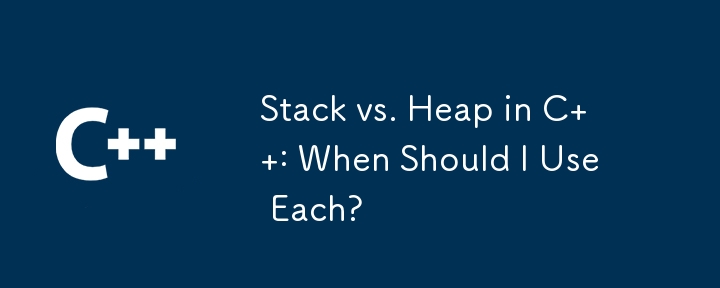

Understanding Stack and Heap Usage in C
Managing memory effectively is crucial in C programming. When determining where to store variables, one must decide between the stack and the heap.
Stack vs. Heap: A Matter of Lifespan
Contrary to popular belief, performance is not the primary factor in selecting between the stack and heap. The key difference lies in the lifespan of variables.
Heap: Stores objects, rarely used variables, and large data structures that need to outlast their declaring function.
Specific Examples for Clarity
Consider the following code snippet:
class Thingy;
Thingy* foo( )
{
int a; // Stack-allocated integer
Thingy B; // Stack-allocated Thingy object
Thingy *pointerToB = &B; // Pointer to stack-allocated object
Thingy *pointerToC = new Thingy(); // Heap-allocated Thingy object
// Safe: Heap-allocated Thingy outlives foo()
return pointerToC;
// Unsafe: Stack-allocated Thingy will be destroyed upon foo() return
return pointerToB;
}In this example:
Attempting to return pointerToB can lead to a crash, as the stack-allocated object it points to will be destroyed.
Critical Distinction: Computer Reality vs. Language Abstraction
Understanding the stack concept requires a deeper dive into the underlying machine. "Heap" and "stack" are compiler inventions, and the computer's memory is simply an array of addresses. By examining concepts such as the call stack and calling convention, one can grasp how the machine executes functions and manages memory.
The above is the detailed content of Stack vs. Heap in C : When Should I Use Each?. For more information, please follow other related articles on the PHP Chinese website!




